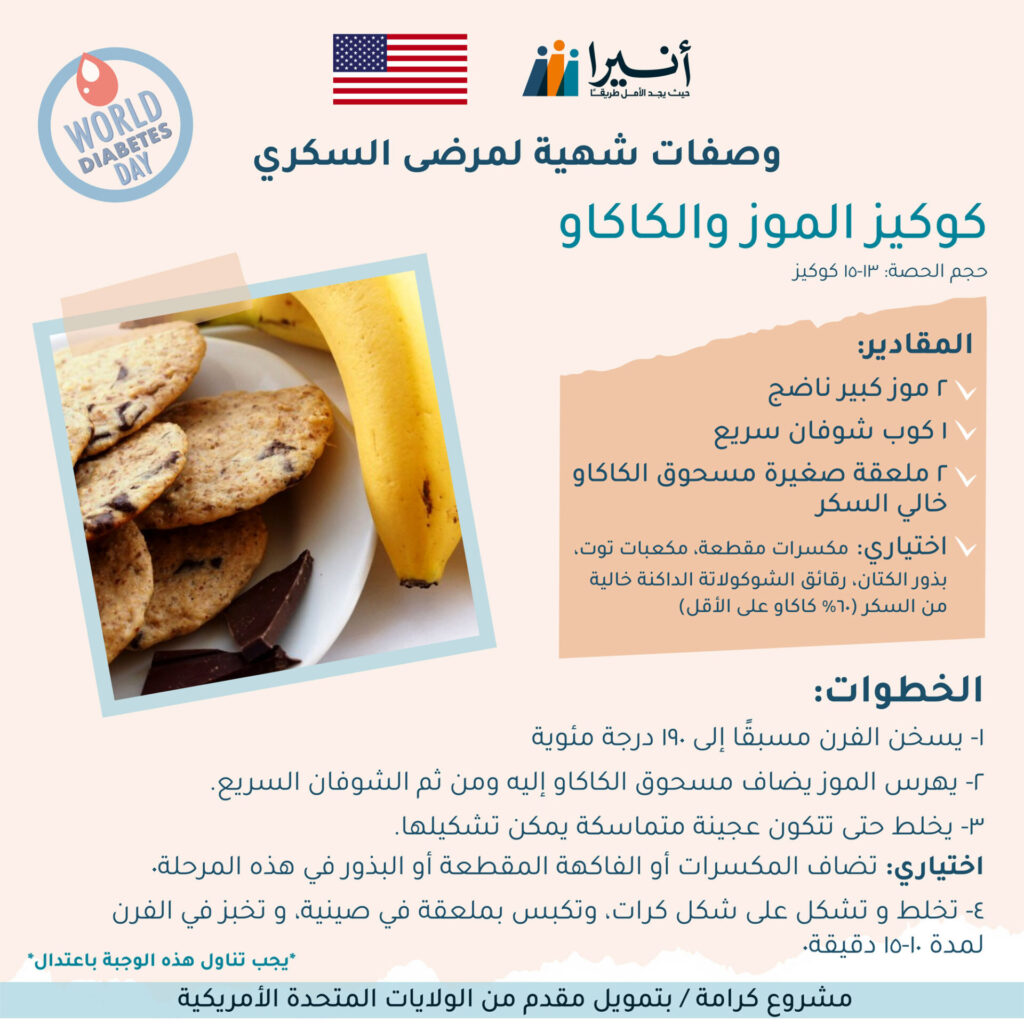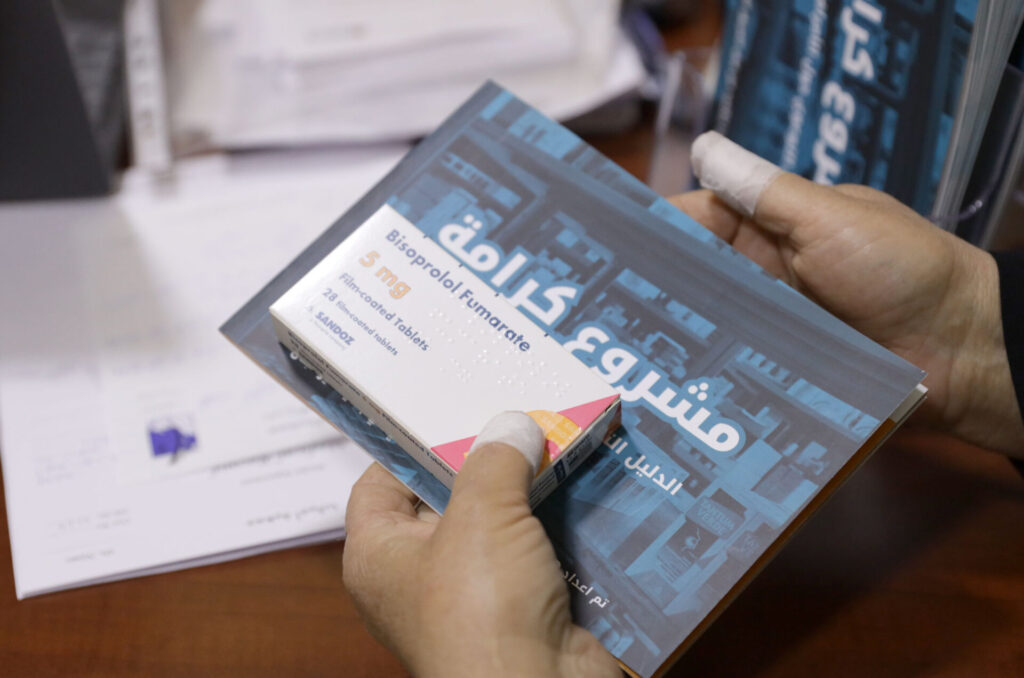Two Years of Expanding Access to Chronic Disease Medicines in Lebanon
Posted in: Programs
One day, Na’mat, a 70-year-old widow living in Tripoli, North Lebanon, felt faint and nearly collapsed in the street. Although she has hypertension, high-cholesterol and diabetes, she hadn’t been taking medications regularly to manage these conditions. The meds were simply too expensive.
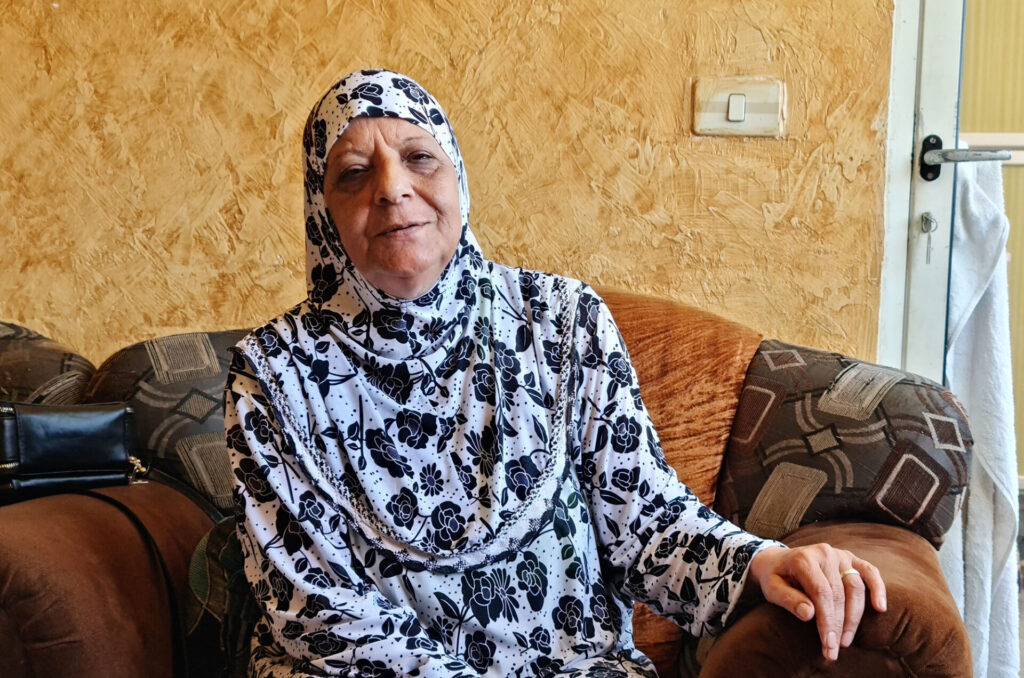

“All of my meds used to cost less than 100,000 pounds — do you know how much they are now? 6.9 million pounds. I haven’t bought all of them in a long time.” — Na’mat
Fortunately, she managed to stay on her feet and get herself to the closest health clinic, where she was treated and connected to a program that provided her chronic medicines at no cost to her.
Na’mat’s travails are not an isolated incident. Many people here find themselves caught in the face of unaffordable healthcare and a choice between life-saving medication or financial ruin. It is a harsh reality that highlights one of the most urgent needs of the people in Lebanon.
A Legacy of Expanding Chronic Medicines Access to the Most Vulnerable
This month marks two years of delivering chronic disease medications to vulnerable patients of all nationalities across Lebanon. The Critical Access for Refugees to Medicine and Health Services (CARMAH) program, which has helped Na’mat and tens of thousands of patients like her in Lebanon, mobilizes international shipment donations and local procurement to expand access to medicines amid unprecedented economic hardship in the country.
The CARMAH program, funded by the U.S. State Department’s Bureau of Population, Refugees and Migration and supported by Americares in partnership with Anera, launched in 2021. At the time, Lebanon’s swiftly crumbling economy had already left many patients with chronic illnesses unable to continue their treatments because they could no longer afford to buy their medicines.
Since the program launched, the economic outlook has only worsened, making initiatives like CARMAH more essential than ever. Living with an illness already leaves patients vulnerable — financial duress compounds the hardship immeasurably. No one should be forced to choose between food or rent, and the medicines they need to maintain their health.
A Healthcare System in Crisis
Before the devastating August 2020 explosion at the port of Beirut, Lebanon was already in crisis. In the fall of 2019, Lebanon’s economy began to implode, as the banking system and currency began to collapse. Along with the COVID-19 pandemic and its effect on the economy, these economic woes forced the previously fixed-rate Lebanese pound into a rapid depreciation against the US dollar. Lebanon now has one of the highest inflation rates in the world.
The deepening economic collapse that began in late 2019 has pushed many families to stop medical treatments and discontinue educational programs. Basic necessities and services like fuel, rent, and transportation are frequently out of reach. The ongoing currency crisis has meant that imported items, including most medicines, have become particularly unaffordable.
With the government’s failure to guarantee public health services, and the lifting of subsidies for medications in November 2022, the public has been forced to attempt to manage as the prices of medicines rise. At the same time, the soaring exchange rate has meant that people’s wages buy less and less.
With the ongoing economic crisis, many patients cannot keep up with the rising prices for medicines and hospital bills. Some 80% of the population is now living in poverty, a seismic worsening of living conditions for the country. Nonprofit healthcare providers in Lebanon have exhausted their medical supplies and need medical donations to continue serving vulnerable communities.
In September 2021, Anera and our partners responded to the developing crisis by establishing the CARMAH project, which serves refugees and vulnerable Lebanese patients alike.
At the time, nonprofit healthcare facilities and dispensaries were running out of essential medicines for chronic diseases. People with chronic illnesses were forced to stand in lines for hours outside pharmacies. Non-profit healthcare organizations had exhausted their medical supplies.
“The unprecedented shortages of medicines right now is heartbreaking. So many people in Lebanon from all walks of life are desperately searching for medicines that simply aren’t available. That’s why CARMAH is so important and will mean so much to the patients it serves.”
Dima Zayat, Anera’s deputy country director in Lebanon, at the program launch
In one respect the situation has since stabilized: outright pharmaceutical shortages are now less of a concern. Today, many Lebanese pharmacies are well-stocked with chronic disease medications. But because most medicines are no longer subsidized, drug prices are exorbitant and put the medicines out of reach for vulnerable Lebanese and refugee communities.
Restocking Pharmacies and Preventing Disruptions in Care
To launch the program, Anera leveraged its longstanding donated medical aid program and its partnerships with valued partners. Anera has implemented CARMAH with significant support from Americares, a leading global nonprofit provider of donated medicine and medical supplies, distributing medicines and supplies to dozens of countries each year. Americares has overseen medicine procurement, international shipping and logistics for the initial two years of the CARMAH project.
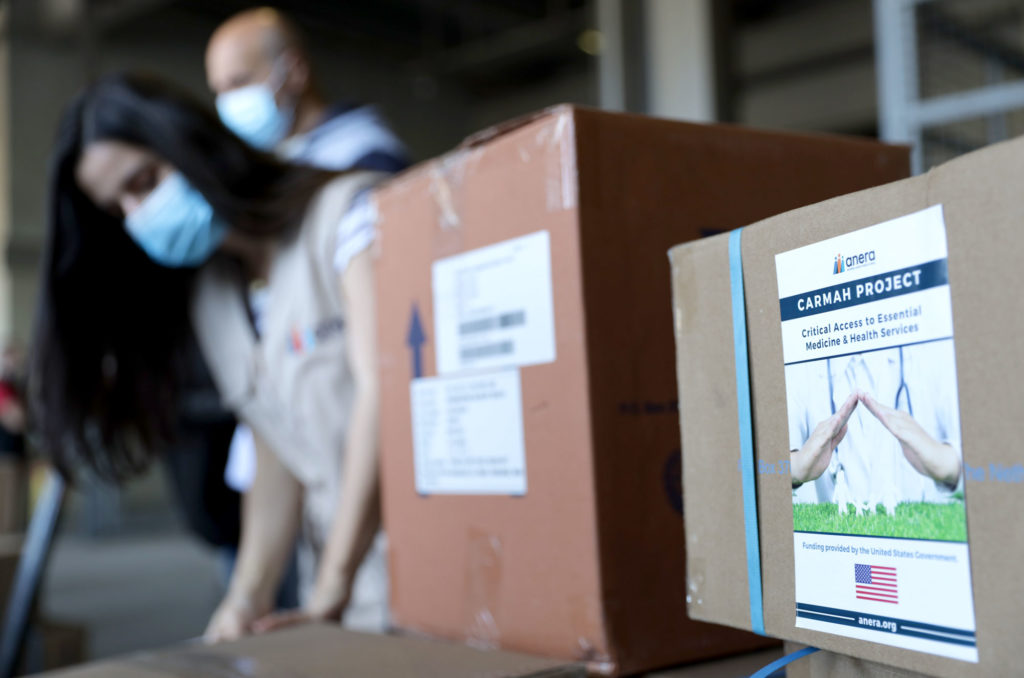

At the local level, primary healthcare providers are the backbone of CARMAH’s effectiveness. The dispensaries operated by nonprofits are the main service providers to refugees and vulnerable Lebanese. These institutions offer general and specialized medical consultations, routine vaccinations, medications for acute and chronic diseases, and reproductive health commodities for free.
The program has also worked to enhance the capacity of the local clinics we collaborate with. Through capacity-building sessions, clinic staff now have comprehensive knowledge and practical skills in critical areas such as protection against sexual exploitation and abuse, good storage and distribution practice, and child protection. These initiatives have led to notable advancements in the operational proficiency of the health centers, and in their ability to uphold the highest standards of care and ethical conduct while providing essential services to beneficiaries.
While our current efforts have been instrumental in addressing critical gaps during this period of crisis, we are also aware of the importance of ensuring a viable future beyond the life of the CARMAH program by enhancing healthcare systems in Lebanon. To that end, we have hosted sessions for dispensaries on primary health care guidelines, which will facilitate their enrollment in the Ministry of Public Health’s network of primary healthcare centers and grant them access to a range of essential services, as well as supplies of vaccinations and medications provided by the Ministry. CARMAH project has also conducted training of trainers sessions for healthcare centers. These sessions equip clinic staff with the skills to deliver awareness sessions directly to patients, extending the knowledge conveyed during these awareness sessions beyond the project’s lifespan and ensuring a lasting and ongoing positive impact on quality of care.
The CARMAH project’s focus on chronic medications makes it unique in Lebanon. Although heart disease, hypertension and diabetes are the most prevalent diseases in Lebanon today, prior to CARMAH there were no programs in Lebanon to support patients with chronic diseases. While the port explosion focused international attention on Lebanon, much of the health relief work focused on acute conditions. CARMAH works to ensure that refugees and vulnerable Lebanese in Lebanon are able to treat their chronic conditions without gaps in care. Half of the patients participating in the program have been Syrian, 48% Lebanese, and 2% have been refugees of other nationalities. Eligible patients receive monthly refills of their prescribed medicines throughout the course of the project.
This program is for patients who are not covered by any form of public or private healthcare insurance coverage. All patients participating in the program have been unable to receive assistance through any other services, whether provided by the government, UN agencies, or nonprofits. CARMAH became a safety net where none existed.
“After the basic chronic medicines were cut off and their prices were high, the CARMAH project was a glimmer of hope and relief for many Lebanese patients and residents of different nationalities.”
Mohammad Kawtharani, head of Tofahta Medical Center, one of CARMAH’s many local primary care partners
“Seeing people who are in desperate need of life-saving medications but unable to pay for them is a national tragedy…At a time when medicines are a scarce resource, we are proud to have donated more than 5.5 million defined daily doses of essential and life-saving chronic medicines all over Lebanon.”
Mohammed Eter, Anera’s project manager for the program
Since September 2021, CARMAH has distributed millions of dollars worth of medicines to many of the most vulnerable patients in Lebanon. CARMAH is currently contributing to the health and wellbeing of tens of thousands of people all over Lebanon. To date, the project has supported more than 30,000 patients (many of whom are refilling multiple medications) and supplied hundreds of thousands of monthly refills (almost 13.3 million defined daily doses) of more than 80 different types of chronic medications to eligible patients in the past two years.
The program has worked with 60 local healthcare centers across the country. Through medical donations and domestic procurement, the program provided a wide range of chronic disease medications to clinics.
Data from local health clinics indicate that there have been fewer cases of patients seeking emergency medical attention among those participating in CARMAH. This reflects the importance of proper maintenance care to avoid medical emergencies and promote good health.
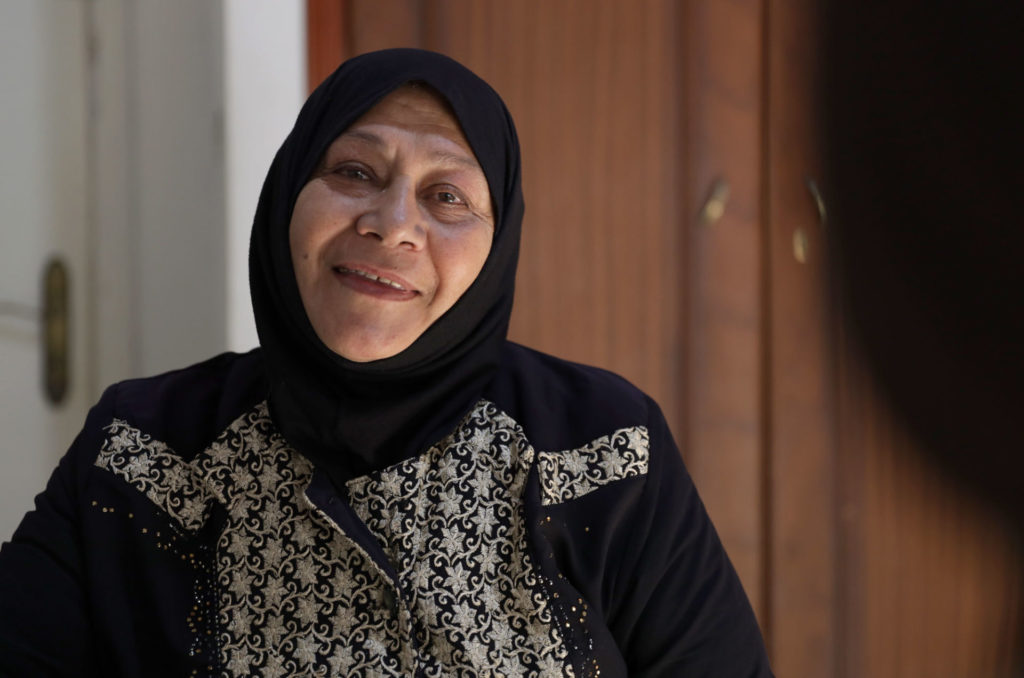

“I’ve lived in agony — not taking my medications because I couldn’t afford them most of the time….if we hadn’t received the medicines from CARMAH, I wouldn’t have even thought of buying them as their prices have skyrocketed.” — Sabah
Zakaria Khoder is a cardiologist and the director of Al Buhaira Medical Center, where Sabah (above) is a patient, in Kouachra, a small village close to the Syrian border. He says that at his center alone, the CARMAH project helps more than 800 people from the village and in the surrounding areas.
Awareness and Education are Critical
In addition to making medicines available to the most vulnerable patients, the CARMAH program team has worked hard to raise public awareness about the importance of consistently managing chronic conditions.
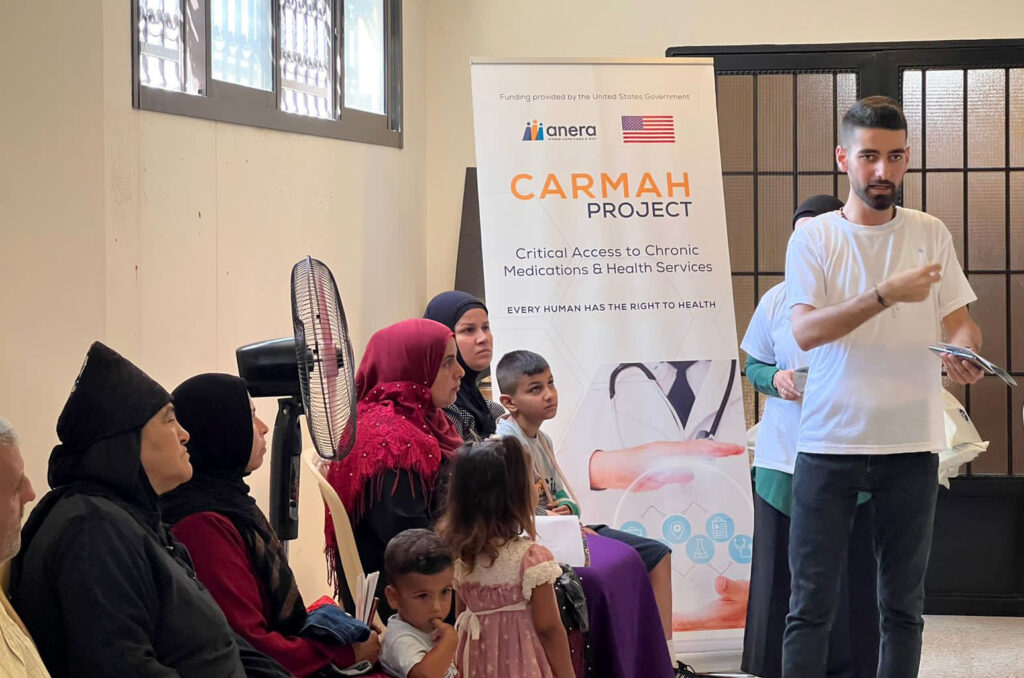

Even the best healthcare interventions will be ineffective if patients do not adhere to their treatment protocols. To help ensure patient adherence, we created a booklet to raise public awareness about 15 common chronic diseases that included a description of each, the symptoms, and how to prevent these diseases from worsening. We also hosted weekly physical awareness sessions at the local health centers and distributed pill boxes to help patients organize and track their medicines at home.
In 2023, Anera published an Arabic page on its website for the CARMAH program that provides useful health information to the public, like a downloadable chronic illnesses brochure, and a list of primary healthcare centers and their contact information.
Evaluations to assess patient knowledge indicate that patients almost uniformly demonstrated greater awareness of how to manage their conditions following the workshops.
More From Patients and Staff
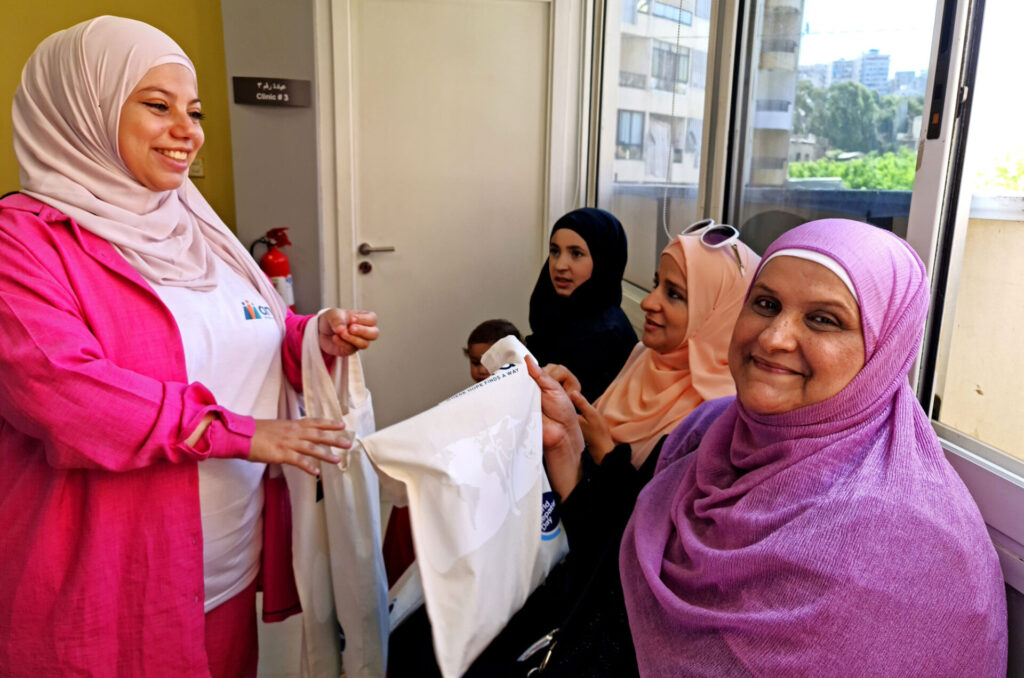

“I used to buy my medication for 10,000 lira. But as the crisis worsened, its price reached 250,000 lira. Often, it sells out and there’s simply none available.”
Reda, a 39-year-old Syrian resident of Beirut
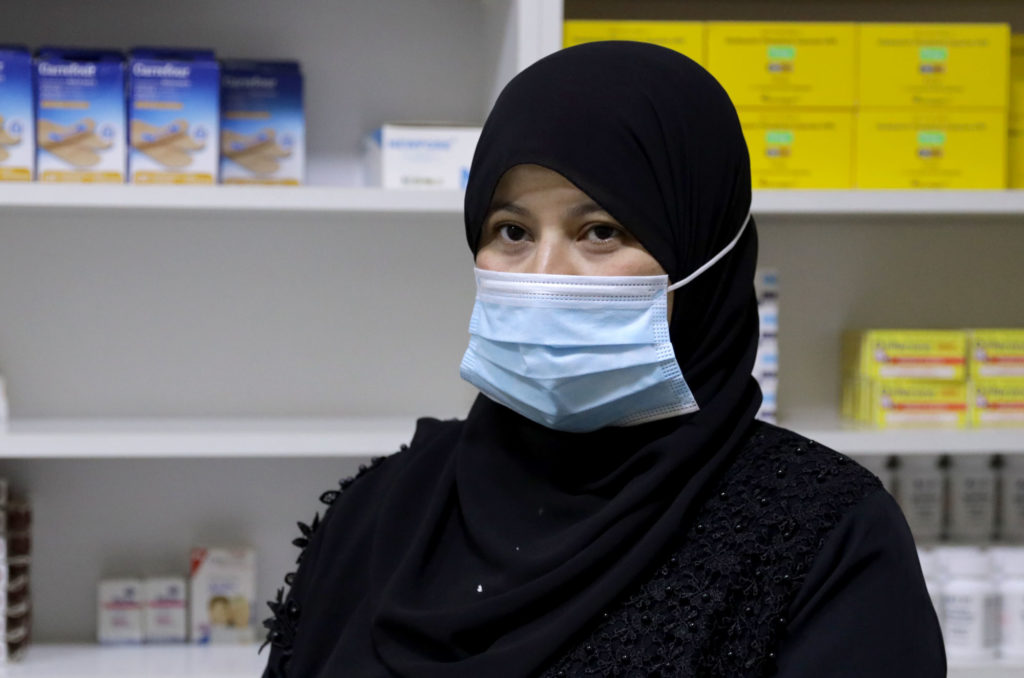

Reda says prices for her medicine have risen by 2,400%.
“We screen the requests to target those most in need with chronic diseases and are not benefitting from other health support programs. The medicines and all our services here are completely free of charge.”
Nour Akkawi, the pharmacist at the Ajialouna Center in Beirut, where Reda is a patient
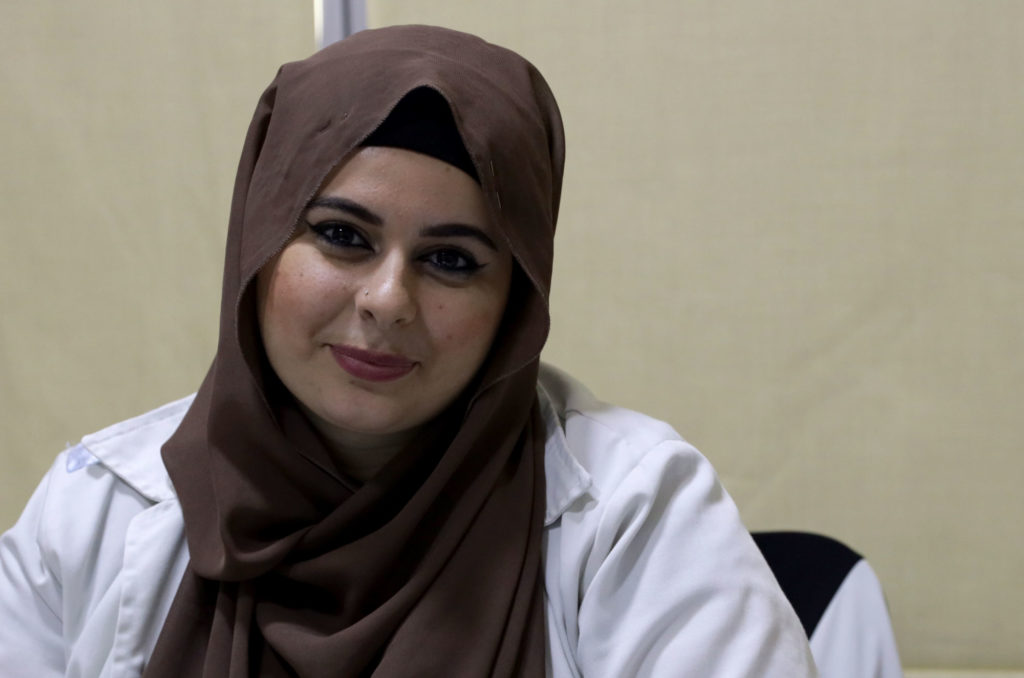

Akkawi says CARMAH has allowed the Ajialouna Center to continue providing treatment for 206 of their most vulnerable patients.
Tens of thousands of vulnerable patients in Lebanon have seen improved health outcomes as a result of having reliable access to medicines for their chronic illnesses. We are immensely proud of this collaboration between Anera, Americares, PRM and local health clinics and the impact it has had in two short years.




OUR BLOG
Related
Joint Statement 200+ NGOs call for immediate action to end the deadly Israeli distribution scheme (including the so-called Gaza Humanitarian Foundation) in Gaza, revert to the existing UN-led coordination mechanisms, and lift the Israeli government’s blockade on aid and commercial…

